Registry of Corvette Racecars chronicles 70 years of history, one car at a time
Chevrolet’s recent news laying out a roadmap for the new Corvette Racing by Pratt Miller Motorsports partnership has both the Corvette and racing communities buzzing. The Corvette Z06 GT3.R customer car program will be a first for the company, going well beyond various race-prep packages the Corvette offered in decades past.
A look back at the factory-backed Corvette Racing’s 25 years of competition shows 125 track victories, including nine class wins at the 24 Hours of Le Mans. The most recent was this past June with the C8.R. That’s a stellar record that should make all Corvette owners and enthusiasts proud.

Missing from Chevy’s exciting racing news, however, was any acknowledgment that the Corvette, now in its 70th year of production, has been racing since nearly the beginning, and often with no factory support. For example, did you know that a 1954 Corvette raced in that year’s LaCarrera Panamerica? The car, campaigned by Bill Von Esser and Ernest Pultz, competed in the infamously dangerous, nearly 2,000-mile road race through Mexico with its Blue Flame six and Powerglide two-speed automatic transmission. This intrepid Vette racer did not finish the grueling contest, but then, just 85 of 150 cars entered did.
In that case, and uncounted thousands of others spanning decades, Corvette racers operated out of their own pockets, sometimes with notable sponsors but often without.
That part of motorsports history is not commemorated much outside of the Corvette community.
Corvette enthusiast, historian, and former vintage racer Jan Hyde is doing something about that. He owns and manages the Registry of Corvette Racecars, a vast online archive he describes as “Corvette racers on tour.” Its mission is to catalog the Corvette racecars and drivers that established the Chevy sports car as a motorsports icon, in road racing and drag racing.
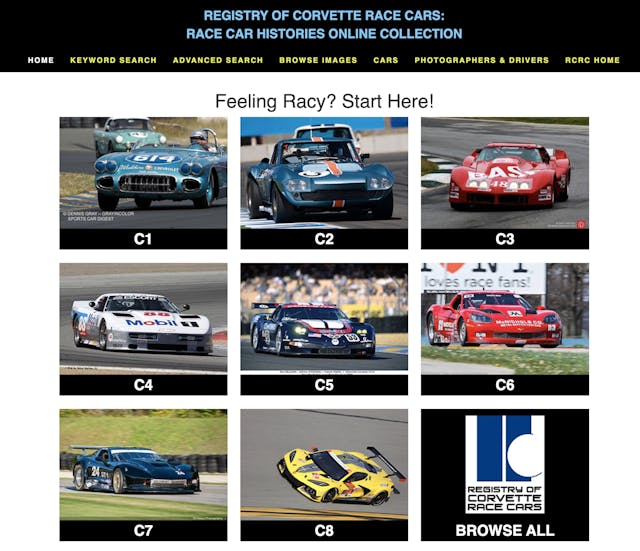
Built on the same software used by museums to catalog and cross-reference their inventories, the Registry has so far cataloged 1600 Corvettes and counting, with historical information and about 20,000 images. The site is a breeze to use, and it presents a very deep and well-organized rabbit hole for Corvette and classic racing enthusiasts to explore.
Registry users can search by numerous categories, including: Corvette generation (C1-C8); model year; specific cars; drivers; races and race series; racecar numbers; vehicle descriptions; associated people, and more.
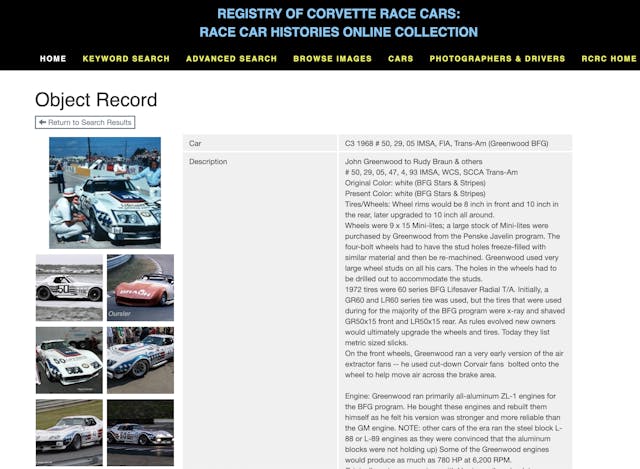
You can even search by a photographer’s name, and some of the people in the photos are searchable, as well. For example, entering “Zora Arkus-Duntov” or “Don Yenko” as search terms brings up all records in which they are referenced throughout the database. Or, click on drivers’ names to bring up other cars they raced. It’s a great tool for tracing individual car history and ownership.
Access to the Registry is available by membership, with $30, $50, and $100 levels charged annually. Having “road tested” the site, we’ll say this research tool can be addictive, pulling you into parts of Corvette racing history that might be unfamiliar.
Corvette heroes, famous and not
Hyde wanted the Registry to also spotlight the Corvette racecar drivers, from the grassroots to pro, including road racing and drag racing.
“We catalog the stories about a self-reliant bunch that confronted GM’s denial of racing involvement by expending their own blood, sweat, and tears to race Corvettes over a very long time,” Hyde tells Hagerty.com. “They had to beg, borrow, and steal parts and often made (and sold) their own.”

The “self-reliant bunch” as Hyde calls them includes names that diehard Corvette enthusiasts may recognize: Delmo Johnson, Grady Davis, Don Yenko, Jim Jeffords, Tony DeLorenzo, Deloy Naeb, John Greenwood, Rick Mancuso, Doug Bergen, Rich Sloma, Rick Dittman, Milton “Babe” Headly, Dick Moroso, Gregg Pickett, Dan Fuery, Alan Sevadjian, Doug Rippie, Lou Gigliotti, Kim Baker, Bob Ruman, Kerry Hitt, Sonny Whelen, and many more.
They raced in in FIA, Trans Am, IMSA, ALMS, Grand-Am, SCCA, NHRA, Corvette Challenge, World Challenge and other series. Entering any race series or sanctioning body in the search fields will bring up cars across the eight Corvette generations.
History in motion

In our review of this sprawling database, we headed right for the C2 tab and immediately zeroed in on the second car listed, Mickey Thompson’s 1963 Z06 Corvette. It was one of two built to race in the NASCAR American Challenge Cup, a sports car race that competed on the Daytona oval. This pair of Corvettes debuted the Mk. II S 427 cubic-inch “Mystery Motor” a week before the engine raced in an Impala in the Daytona 500 NASCAR race.
On the same page, you’ll find the Dana Chevrolet-sponsored 1967 L88 Corvette that raced at Le Mans, as well as 1963 Grand Sport #1 and Grand Sport #2. Delving deeper into the C2 section brings up more rarities as well as several hundred SCCA and vintage racers.
Digging into the other Corvette generation sections yields similar intriguing finds.
Corvette Challenge
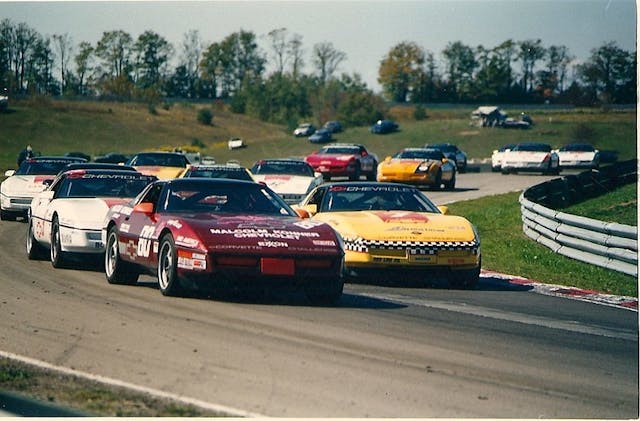
The Registry of Corvette racecars includes the privately organized 1988-1989 Corvette Challenge one-marque series privately formed after the SCCA booted the C4 Vette from its Showroom Stock series–for winning too much! In case you might remember this as a Chevrolet-run series, it was not.
“The Corvette Challenge organized by John Powell was paid for by dealerships,” Hyde says. “It was the same for the C4 GTP managed by Rick Hendrick in the name of research and development and sponsored by Goodwrench.”
Chevy only built the specially equipped Corvette Challenge cars when a dealer, Malcolm Konner Chevrolet in Paramus, New Jersey, placed an order for the first batch of 50, selling them to racers through other Chevy dealers. The Registry includes many of the cars used, with driver information.
Diehard Corvette racing fan
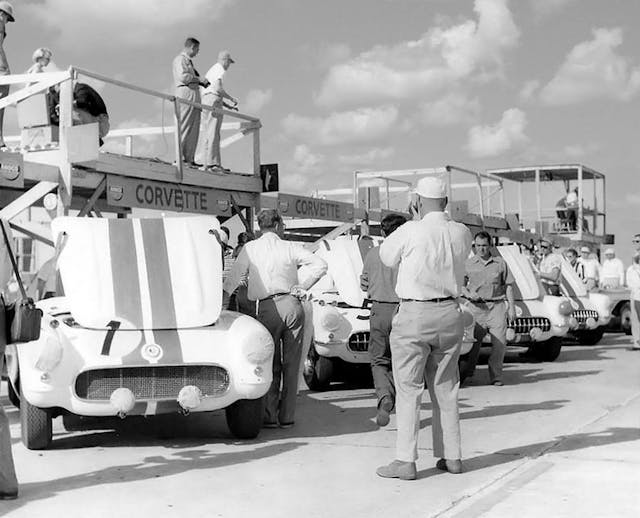
Hyde’s infatuation with Corvettes and Corvette racing began as a teenager growing up in Pittsburgh. He credits that spark to the corporate-sponsored private Corvette racing team started by Grady Davis, a top executive with Gulf Research and Development Company. Chevy dealer Don Yenko and Dr. Dick Thompson were the drivers. (Thompson was known as “The Flying Dentist”). All three men are members of the Corvette Hall of Fame.
Retired from a 40-year career in investment banking and real estate, Hyde still owns and drives the 1960 Corvette fuelie he bought in 1964 while living in San Francisco. That summer, he drove cross-country to start Harvard Business School and used the car as daily transportation, even after settling in Brooklyn, New York, where he still lives.
In Brooklyn, Hyde met Corvette racer Frank Dominianni, whose shop was in nearby Valley Stream. He bought one of Dominianni’s racing engines, and it’s still under his Corvette’s hood. Later, Hyde bought one of his retired Corvette racecars and campaigned it in vintage racing for 15 years.
Creating the Registry
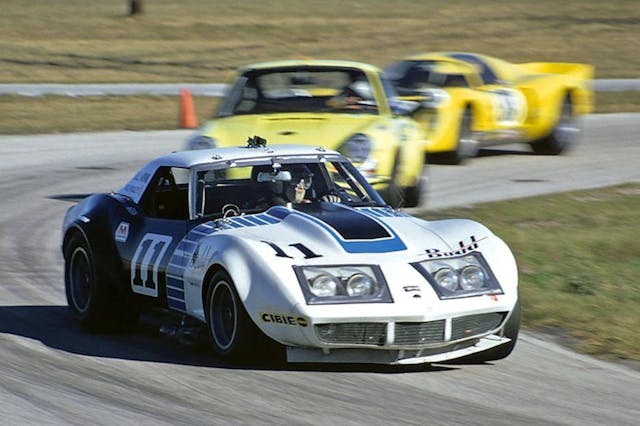
The idea of starting the Registry hatched some years ago with Hyde’s friend and colleague, Jim Gessner, who is well known in the Corvette world. Gessner has been locating, buying, collecting, and selling Corvettes since 1969 and does so today through his website, vettefinderjim.com.
“Jim began collecting information on C1 and C2 Corvette racecars and putting it into spreadsheets,” says Hyde. “We got them printed, and they were huge! We had to lay them out on the floor to read. I suggested doing a website.”
Hyde and Gessner initially worked with Corvette author Wayne Ellwood, with Hyde investing in the legal work to incorporate the new venture. “I ended up taking over ownership,” he says. When the database software he was using became obsolete a few years ago, Hyde transferred the information into a museum software package called PastPerfect, a three-month process.
Preserving history, even when it’s been erased

Hyde makes all updates himself, incorporating information from “a lot of contributors.” He explains that in collecting and reviewing the material, he and his team can solve some mysteries about Corvette racecars and correct the record when necessary.
“I personally know the histories of many cars, and I can tell the authentic cars,” Hyde says.
A key benefit of the site, he points out, is that enthusiasts and collectors can see how a car looked when it raced and how it evolved as it moved from owner to owner and series to series over the years. It also shows that, for some cars, race history gets erased when collectors restore a Corvette racecar to original factory condition, rather than preserve it as it raced.
Hyde emphasizes the “live” nature of the Registry. “It’s a project that never ends. It will never be 100 percent correct, but we’re aiming to not be 100 percent wrong.”
Now 82, Hyde is considering options to ensure that the Registry of Corvette Racecars will outlive him. “My goal is for this tool to be preserved by others to keep it going. It takes time and money,” he says. This inveterate Corvette enthusiast is open to ideas.
***
Check out the Hagerty Media homepage so you don’t miss a single story, or better yet, bookmark it. To get our best stories delivered right to your inbox, subscribe to our newsletters.
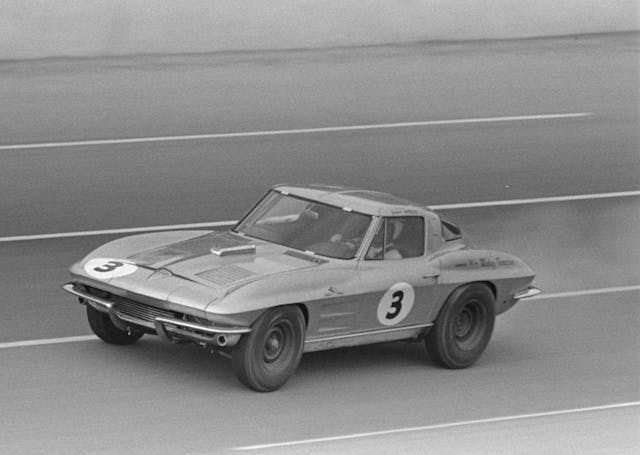
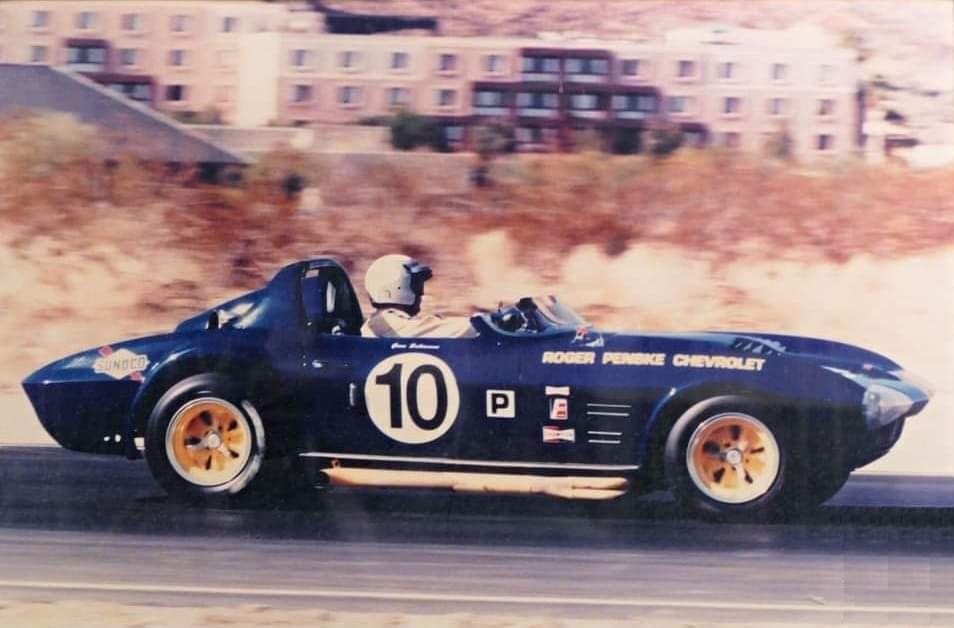
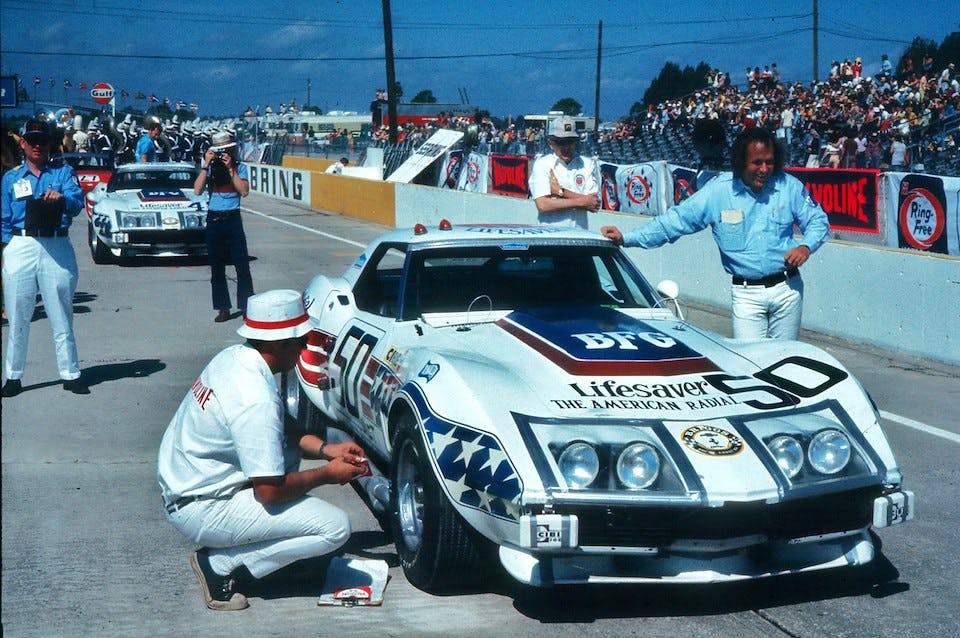
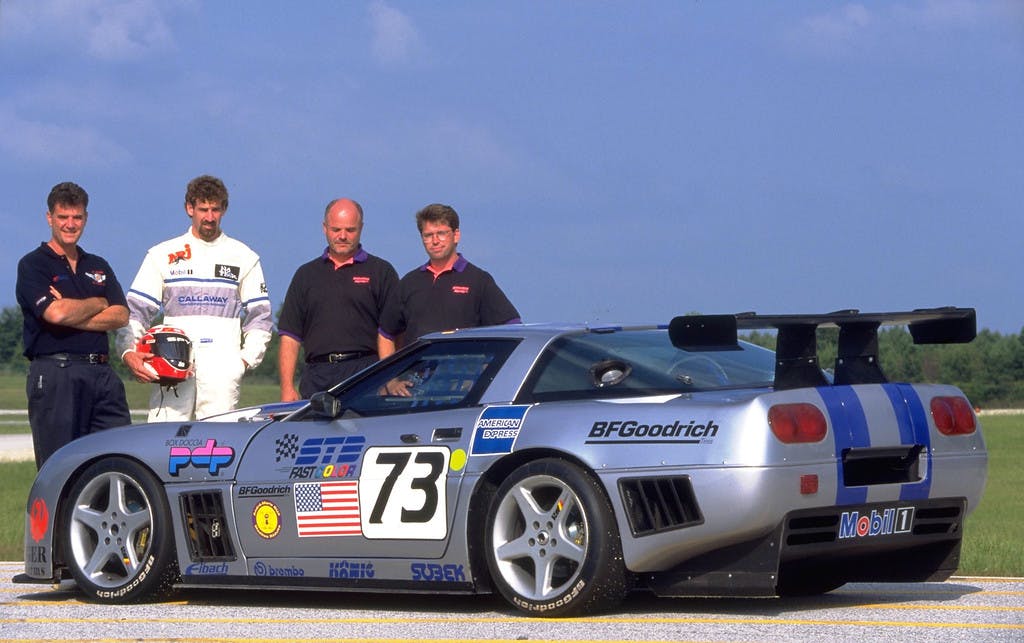
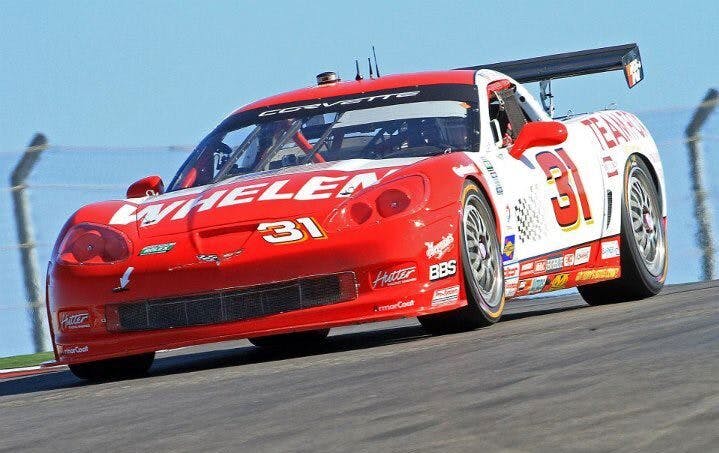
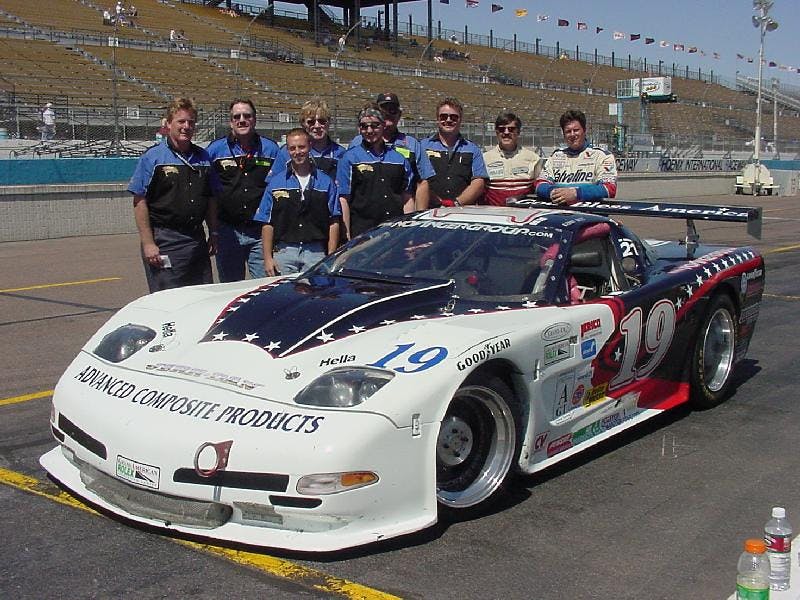


The lead photo showing the hood bowing up on the M/T Corvette tells a tale of aerodynamics, eh ?
Gotta hand it to GM – and so many of the folks that explored the ultimate use of the cars – for racing the Corvette.
I like the idea. Would be nice to have access to it beyond a paywall as a Corvette fan.
Wonder if there is any mention of the SoCAL Dave McDonald tube frame early 60’s number ( 0 0 ) ?? I was always impressed and intrigued by the crafty hot rod solution employed.
Werent those “mystery motor” Corvettes, the cars that were outrun by the car 50 1963 Tempest driven by Paul Goldsmith.